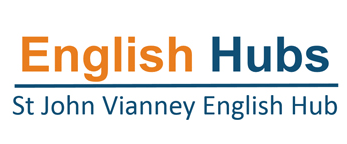Nurture

Nurture Group : Provision
St John Vianney uses the Nurture Principles to enable children to develop socially and emotionally throughout all learning. Nurture groups that are offered to children build on these principles in a more relaxed setting with a smaller group of children.
Our Nurture groups support children throughout the school with their social, emotional and mental wellbeing. Nurture principles are based on Attachment Theory – the idea that developing positive relationships with family, peers and other adults from an early age facilitates healthy development. Nurture practices aim to give children the social and emotional skills to do well at school and with peers and develop their resilience.
Our Nurture groups are small in size and children visit for an hour a day, remaining with their class for the rest of their learning. There is plenty of time speaking and listening as communication and development of language is key to Nurture practices.
Nurture Principles:
- Children’s learning is understood developmentally.
- The classroom offers a safe base.
- Nurture is important for development of self-esteem.
- Language is understood as a vital means of communication.
- All behaviour is communication.
- Transitions are significant in the lives of children.
If you are interested in finding out more about Nurture, please visit www.nurtureuk.org
|
Helping every child become able to learn: nurtureuk home nurtureuk is a charity dedicated to promoting the importance of nurture and providing training and resources to help children and young people thrive. Discover more on our homepage. |
Nurture Group: Parental Guidance
During Nurture Group, we work alongside the children to recognise barriers to learning and explore solutions and strategies. We recognise achievements and milestones. We also place an emphasis on the children self-evaluating their own progress. This enables them to recognise their own self-worth and increases their ability to work independently in all areas.
The sessions are planned and structured after completing an assessment using ‘The Boxall Profile’ to maximise the impact on the individuals, tailoring to the needs of the children who attend.
A typical session format will consist of:
- Welcome
- Circle time
- Topic based input
- Related activity
- Snack
- Conclusion (Review/target setting)
During our sessions emphasis is also placed upon friendship, sharing and collaboration.
Boxall Profile
The Boxall Profile is an assessment of a child’s social and emotional aptitudes. It was developed through many years of research by Educational Psychologist, Marjorie Boxall and has been used widely in schools and for research for over 20 years.
The profile has its base in Attachment Theory and allows an insight into a specific child’s behaviour and enables planning for teaching, taking into account specific strengths and weaknesses.
At St John Vianney, we use the Boxall profile as part of our toolkit to develop a holistic understanding of each child. Children are assessed to add an understanding of the child’s social and emotional wellbeing to the academic results we track. The results of the Boxall profile inform targeted planning and meet the needs of each individual child.
Although the Boxall Profile is a useful tool for identifying strengths and areas for development, the views of parents/carers, teaching staff and most importantly the children themselves are also taken into consideration both within classrooms and when accessing support such as Nurture Group.



